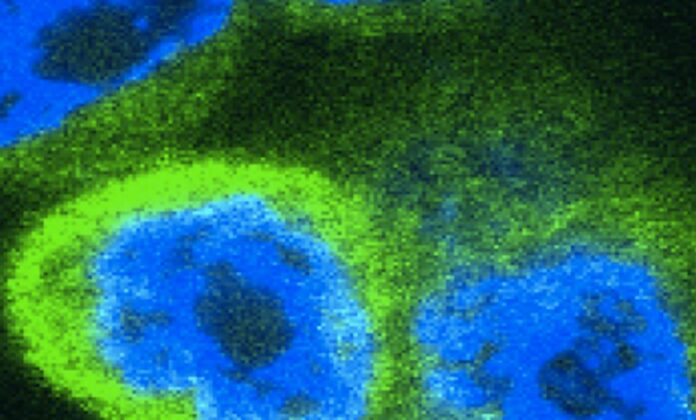A new study shows that a key immune alarm protein that was once thought to calm the immune response actually makes inflammation worse.
Researchers from Trinity College Dublin have made a significant advancement in understanding the regulation of inflammation. They have found that a key immune protein previously thought to reduce the immune response actually activates it instead.
The impact of this research is vast, particularly in the field of autoimmune disorders and inflammation. It has the potential to inform our understanding and response to these conditions.
While the immune system is crucial for protecting the body from infection and injury, overactive immune responses can lead to harmful inflammation. This can occur in conditions like rheumatoid arthritis and psoriasis. When the body produces interleukins, also known as “alarm proteins,” it activates various components of the immune system to defend against infection and injury, leading to inflammation.
Gaining insight into the production and activation of alarm proteins by the immune system has resulted in major advancements in the treatment of various immune disorders.
Interleukin-37 was previously thought to act as an “off switch” for the immune system, but now researchers at the Smurfit Institute of Genetics at Trinity College Dublin, led by Seamus Martin, the Smurfit Professor of Genetics, have discovered that this interleukin actually has an unexpected function as an immune-activating molecule.
“Interleukins play key roles in regulating our immune systems in response to bacterial and fungal infections,” explains Professor Martin.
“However, Interleukin-37 has long remained an enigma, as it isn’t found in mammals such as mice. This has presented a major obstacle to figuring out what it does as much of what we know about the human immune system has first been discovered in model organisms whose biological make-ups are similar to ours.”
Before the new study, people thought that Interleukin-37 slowed down the immune system, but how it stopped inflammation was a hotly debated topic. But scientists at Trinity now say that when Interleukin-37 is activated in the right way, it has strong pro-inflammatory effects.
“This pro-inflammatory impact was highly unexpected,” continues professor Martin.
This new “work shows that the protein binds to an interleukin receptor in the skin that is known to play a key role in driving psoriasis. And, to add further intrigue to the story, this brings the total number of immune alarm molecules that signal via this particular interleukin receptor to four.
“Why there are so many interleukins that bind to the same receptor is a mystery, but if we were to speculate it may be because this receptor serves a very important sentinel function in our skin, and that one alarm protein may simply not be enough to respond to the many different infectious agents that our skin encounters. Our skin is the major barrier between our bodies and the outside world that microbes must breach if they are to gain entry to our bodies and, in many respects, represents the first line of defense in our immune systems.”
So, Interleukin-37 and other immune alarm proteins may have changed over time to become different versions of the same thing. These variations allow our bodies to detect different types of infection by being turned on by enzymes that are unique to each type of infection.
Source: 10.1126/sciimmunol.ade5728
